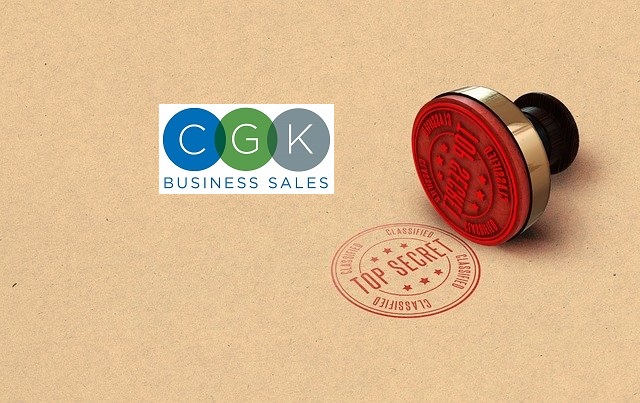The Ultimate Guide to Confidentiality Agreements

The Ultimate Guide to Confidentiality Agreements
Sharing sensitive information about your business can be a risky venture. After all, you need to protect your company and all its assets from prying eyes. These days, there’s a chance that anyone who learns something about your company could potentially share that information with someone else. If it falls into the wrong hands, it could mean major trouble if not the end of your business altogether. We’ve prepared this The Ultimate Guide to Confidentiality Agreements to help you become comfortable with the general idea of a confidentiality agreement.
Having said that, there are times when you have to share important details with other parties. Fortunately, you don’t have to do so blindly with the hope that those people won’t wrongfully use the information you give them for their own gain.
You can have them sign a non-disclosure agreement (NDA) to safeguard yourself and your company against fraud and other offenses. Of course, it’s important to understand what NDAs, or confidentiality agreements, entail and how to use them to your benefit.
What Is a Confidentiality Agreement?
As the name indicates, a confidentiality agreement is a legally binding contract between you and other parties that states they won’t share your sensitive information with anyone else. You can have other parties sign them to protect various details about your company, such as your business strategy, your finances, your company’s market value, and products or services you’re planning to launch to name a few.
You can also use NDAs in situations where you don’t want your clients’ names and contact information released to other companies, like competitors or call lists for example. If necessary, you can employ confidentiality agreements to keep your marketing strategies and campaigns from being stolen and copied by competitors. You might even use an NDA to prevent people from sharing your manufacturing processes and the materials you use in your products.
When Should You Use a Confidentiality Agreement?
We’ve already covered some of the general ways you can use a confidentiality agreement to protect your assets and proprietary information. Now, we’ll delve a bit deeper into some of the scenarios in which an NDA would be advisable.
- Requesting quotes or proposals from outside companies, such as product suppliers, software developers, and other contractors.
- Outsourcing part of your workload, including logistics, accounting, parts of your manufacturing processes, marketing, and distribution.
- Developing partnerships with outside parties, like making arrangements with vendors or creating licensing agreements.
- When hiring independent contractors, including designers, engineers, freelancers, and consultants.
- Resolving disagreements between your company and its employees, contractors, and other parties who may be intertwined with your business.
- When hiring and firing employees to ensure they don’t use their access to your confidential information to help your competitors as well as themselves.
In addition to those instances, you might want to develop a non-disclosure agreement if you’re planning to sell your business. This is true even if you’re working with a trusted business broker. Brokers need access to vital details about your company, so they can help with business valuations, finding the right buyers, and other crucial elements of the sales process. Even more importantly, if you want someone to pay you millions of dollars for your business, you will need to share some details. This wouldn’t be The Ultimate Guide to Confidentiality Agreements if we didn’t talk about this in an mergers and acquisitions sense, right? Your business broker should know what is appropriate and what is not and at what time certain sensitive details should be shared. For instance, details about who your customers are, how much they order, and their contact information should, many times, only be shared later in the due diligence process.
Are There Times When You Shouldn’t Use an NDA?
Yes, there are occasions when an NDA wouldn’t be appropriate. It’s not a good idea to ask potential job candidates to sign non-disclosure agreements during their initial interviews. At the same time, never try to use a confidentiality agreement to cover up misconduct.
In fact, in some states, it’s illegal to ask employees and other parties to sign NDAs to try to sweep situations like sexual harassment, discrimination, and fraud under the rug. This rule likewise applies to unsafe working conditions and non-compliance issues.
What Should Be Included in an NDA?
If you’re going to use a non-disclosure agreement to help protect your best interests, it’s important to cover all the bases. While The Ultimate Guide to Confidentiality Agreements would need to be a thousand or more pages to cover every base, certain elements should be included in any NDA regardless of the situation that warrants it or what you’re protecting.
- What Information Is Being Protected – Considering the very purpose of an NDA, you need to be sure to specify the information that’s not to be disclosed to anyone other than those involved in the immediate situation. This may vary depending on the parties with which you’re sharing sensitive details, but take care to cover any pertinent information you might be divulging to others.
- How Your Information Can Be Used – In addition to defining which information you’ll be disclosing, be sure to provide details about how those you’re sharing it with are allowed to use it. You might specify that employees can’t share information about your latest product with a competitor, but that won’t stop them from stealing the idea and trying to take credit for it. On the other hand, they may need to disclose information about the product to members of your manufacturing department. The line between acceptable and objectionable is very blurry unless you clear it up.
- Offer Incentive or Compensation – You can’t really expect someone to sign an NDA without getting something in return. That doesn’t necessarily mean you have to pay off the signers for their silence. One prime example would be providing a severance package to an employee you’re firing in exchange for not sharing certain information with other companies in your niche. If you’re asking a new member of your supply chain to sign an NDA, the incentive would be the business you’re giving them and the profits they’re bound to gain from it.
- Don’t Infringe upon the Signer’s Rights – Ensure that the NDA you’re creating doesn’t cross any lines when it comes to the signer’s rights. This is where the previously mentioned situations in which an NDA isn’t a good idea come into play. You could lose more by trampling on the rights of the signer than you would by simply leaving things as they are.
- Define How Long the Agreement will Last – You’ve mentioned which information must be kept secret and to what extent, but how long does the rule apply? Signers might use the lack of a specified duration as a loophole. Sure, the agreement said they can’t share sensitive details right now, but what about next week or five years from now?
As a final measure, don’t forget to specify the consequences of breaking the agreement. People aren’t always inclined to do what they’re supposed to if they think they won’t be held accountable for their actions. Include in the NDA what will happen if signers break the agreement. Will they be taken to court? Will they lose your business? Will they be forced to pay your company damages?
Protecting Everyone’s Best Interests
Now that you’re better acquainted with non-disclosure agreements, you’ll be equipped to protect your best interests when sharing confidential information with other parties. Keep in mind, this is a two-way street. If you’re developing a business partnership with another company or individual and you’re asked to sign a confidentiality agreement, offer them the same courtesy you expect for yourself. Further, if you’re planning on selling your business and using a trusted business broker to do so, make sure they use a relevant NDA to protect your interests. Hopefully, The Ultimate Guide to Confidentiality Agreements helped prepare you to be comfortable with your next confidentiality agreement.

